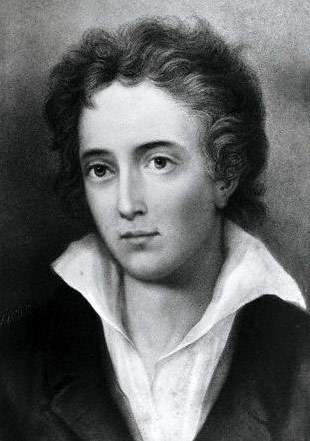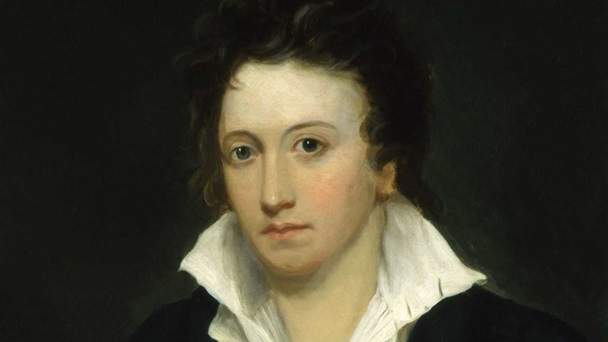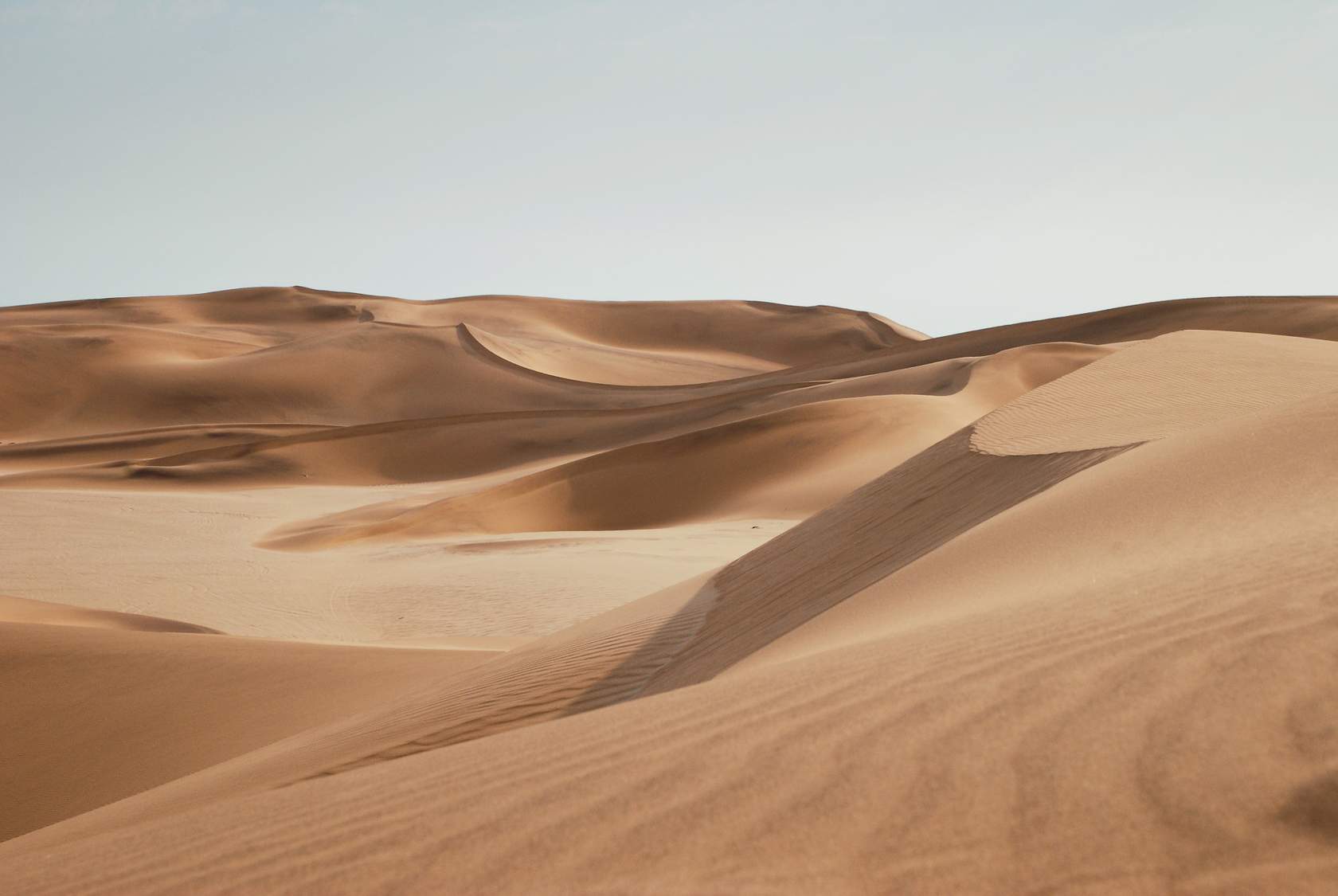Percy Bysshe Shelley
Authorial Context: Percy Bysshe Shelley (1792–1822)
The poet Percy Bysshe Shelley was born in West Sussex. His father, Timothy Shelley, served as a Member of Parliament, while his mother, Elizabeth Pilfold, was a landowner. Shelley spent a pleasant childhood in the warm countryside of southern England, but soon he had to be sent away to school. The young poet had very negative experiences at Syon House Academy and then Eton College: he was bullied mercilessly for his lack of athleticism and interest in science.
Shelley began formulating his progressive ideas at Oxford through poems and essays, including a pamphlet entitled "The Necessity of Atheism" (1811). The university quickly expelled him when he refused to forsake his beliefs.
A few months after his expulsion, the teenage Shelley eloped with another teenager, Harriet Westbrook.
Meanwhile, Shelley's father had cut him off, so Shelley sought guidance from an older man who shared his radical views. Eventually, he formed a friendship with William Godwin, the philosopher. On his many visits to Godwin's home, Shelley met and fell in love with Godwin's daughter, Mary. Even though his current wife, Harriet, was pregnant with their son, Shelley ran off with Mary. He believed it would be more immoral to remain with a wife he did not love (Harriet) than to follow his heart's desires.

The couple traveled throughout Europe, estranged from their families for two years until the death of Harriet allowed them to legally marry. As they moved from place to place, they befriended other poets and radicals, such as Thomas Love Peacock, John Keats, and Lord Byron. Between 1816 and 1820, Shelley's creative friendships, combined with his personal sorrows, led him to write his best poems and plays.
Percy and Mary Shelley finally put down roots in Pisa, Italy, in 1820. Sadly, they only lived there for two years. When Percy was only 29, he and his close friend Edward Williams went on a boating adventure and perished in a sudden, violent storm. His ashes were buried in Rome beside his deceased son.
Shelley's Legacy
Like his friend Lord Byron, Shelley is remembered as much for his life as his writing.
The actions that [Shelley] justified to himself because they were true to his convictions often led to disastrous consequences for those near him, especially women; and even recent scholars ... attribute some of these actions to a self-assured egotism that masked itself as idealism.
Norton Anthology of English Literature
We mustn't dismiss the personal failures of an author, especially the way that they hurt other people. An artist's good art does not morally excuse them.
In Shelley's case, some believe that he simply behaved like a "true Romantic."
The life and works of Percy Bysshe Shelley exemplify Romanticism in both its extremes of joyous ecstasy and brooding despair. The major themes are there in Shelley's dramatic if short life and in his works, enigmatic, inspiring, and lasting: the restlessness and brooding, the rebellion against authority, the interchange with nature, the power of the visionary imagination and of poetry, the pursuit of ideal love, and the untamed spirit ever in search of freedom—all of these Shelley exemplified in the way he lived his life and live on in the substantial body of work that he left the world after his legendary death by drowning at age twenty-nine.
Poetry Foundation

Shelley's works prove that Romantics did not have their heads in the sand. He did his best to mix poetry and politics in works like Queen Mab and Prometheus Unbound.
The young poet also expresses more skepticism than the first generation of Romantic poets, perhaps because of his atheistic viewpoint. For example, he finds nature to have more of an "awful blankness" (Poetry Foundation) than friendly helpfulness.
"Ozymandias" (1817)
Poem Context
Ozymandias is the Greek name for Ramses II, an Egyptian pharaoh in the 13th century B.C.E. This poem references a sculpture of this pharaoh with an ironic inscription.
Vocabulary Guide
Visage: a person's face
Pedestal: the base on which a statue is mounted
I met a traveller from an antique land,
Who said—'Two vast and trunkless legs of stone
Stand in the desert. ... Near them, on the sand,
Half sunk a shattered visage lies, whose frown,
And wrinkled lip, and sneer of cold command, [5]
Tell that its sculptor well those passions read
Which yet survive, stamped on these lifeless things,
The hand that mocked them, and the heart that fed;
And on the pedestal, these words appear:
My name is Ozymandias, King of Kings; [10]
Look on my Works, ye Mighty, and despair!
Nothing beside remains. Round the decay
Of that colossal Wreck, boundless and bare
The lone and level sands stretch far away.'
"Ozymandias"
Literary Device
Imagery
In this short poem, Shelley offers the reader a vivid picture of the crumbling statue of Ozymandias. Only the statue's legs remain standing (line 2) while a "shattered" head has fallen into the sand (4). There is something almost funny about the image of a "sneering" stone face lying by itself! The traveler describes how the ruins are surrounded not by slaves or admirers but by the empty, indifferent desert.

Literary Device
Irony
Paired together, the imagery and the inscription on the statue create irony. The statue declares:
"My name is Ozymandias, King of Kings,
Look at my Works, ye Mighty, and despair!"Of course, 2,000 years later, the almost comical image of the beheaded, crumbling statue as it is does not cause any despair in the "Mighty." Although Ramses calls himself "King of Kings," he died and wasted away like all rulers before and after him.
Literary Device
Alliteration
Alliteration is the occurrence of the same letter or sound at the beginning of adjacent or closely connected words. There are a few examples of alliteration in "Ozymandias":
"sneer of cold command" (5)
"that colossal Wreck, boundless and bare" (13)
"lone and level sands stretch far away" (14)
Theme
Man's Impermanence vs. Nature's Permanence
"Ozymandias" illustrates the tension between the brief lifespan of human beings and the perpetuity of the natural world. Even the most powerful kings and nations will return to dust. Although a work of art lasts much longer than its creator, even the most impressive creations, like this massive Egyptian statue, will eventually return to their raw form.